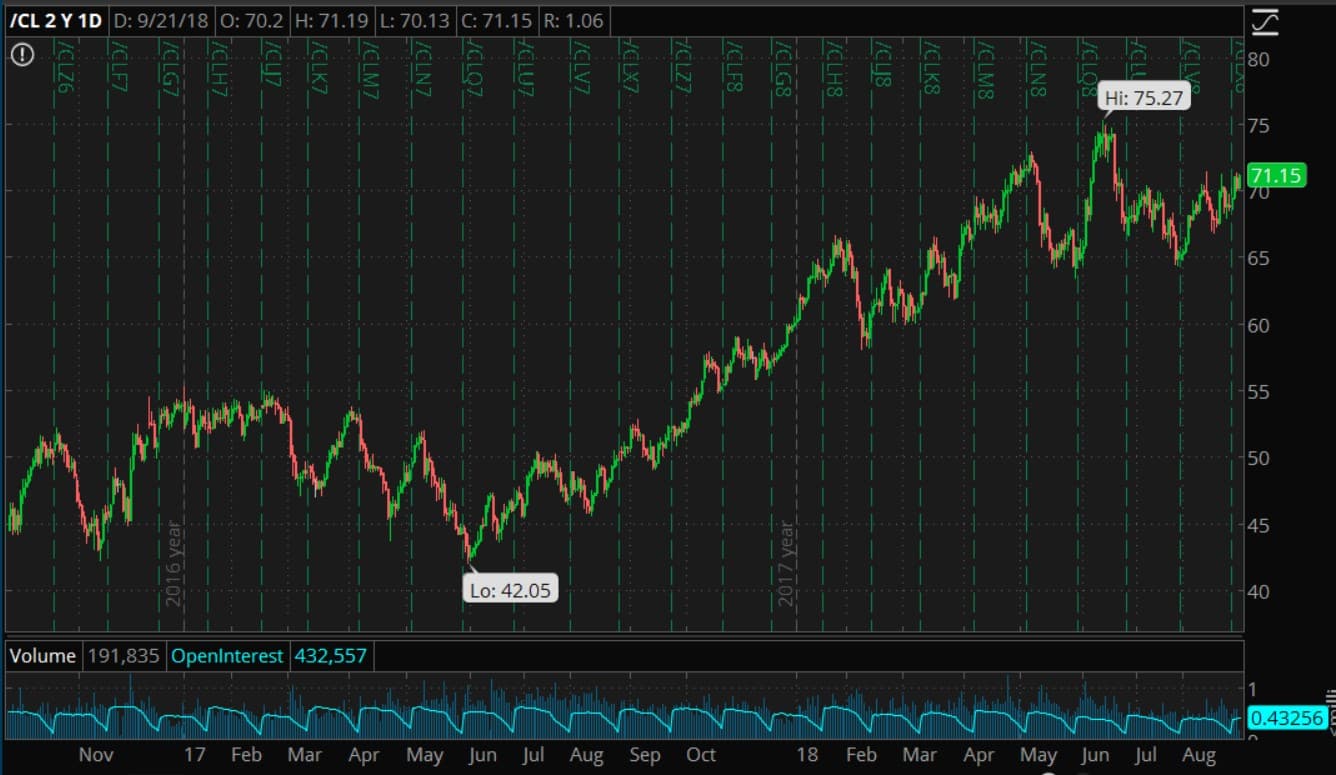OPEC meetings, or more recently the meetings of “OPEC and friends”, are always big news in the energy sector. The price of oil is the most important factor in the profitability of energy companies, even those not in the oil business directly. It sets the standard for energy pricing generally, so cannot be ignored, and as OPEC’s express purpose is to influence price we all have to pay attention when they meet and speak. This weekend’s gathering in Algeria may be even more important than usual though, and traders will be watching closely. Traders are risk takers, of course, so the temptation for many will be to go into the weekend with a position in an attempt to profit from the announcement that will follow the meeting. In this case though, that would be a mistake.
There are some special circumstances surrounding this meeting that make the decision, and even the ability of the countries concerned to execute that decision, hard to predict. The first of those is where oil prices currently sit.
(Click to enlarge)
As I’m sure you are aware, oil, both WTI as seen above and Brent, has been climbing steadily for over a year and is now nudging multi-year highs. That has at least in part been OPEC’s doing. The agreement to cut output signed by members and several other major producing countries, most notably Russia, has had the desired effect. In fact, it could be said that it has been effective beyond the wildest dreams of even its instigators. WTI has been…
OPEC meetings, or more recently the meetings of “OPEC and friends”, are always big news in the energy sector. The price of oil is the most important factor in the profitability of energy companies, even those not in the oil business directly. It sets the standard for energy pricing generally, so cannot be ignored, and as OPEC’s express purpose is to influence price we all have to pay attention when they meet and speak. This weekend’s gathering in Algeria may be even more important than usual though, and traders will be watching closely. Traders are risk takers, of course, so the temptation for many will be to go into the weekend with a position in an attempt to profit from the announcement that will follow the meeting. In this case though, that would be a mistake.
There are some special circumstances surrounding this meeting that make the decision, and even the ability of the countries concerned to execute that decision, hard to predict. The first of those is where oil prices currently sit.

(Click to enlarge)
As I’m sure you are aware, oil, both WTI as seen above and Brent, has been climbing steadily for over a year and is now nudging multi-year highs. That has at least in part been OPEC’s doing. The agreement to cut output signed by members and several other major producing countries, most notably Russia, has had the desired effect. In fact, it could be said that it has been effective beyond the wildest dreams of even its instigators. WTI has been in a roughly 65-75 range for nearly six months now and there is every indication that that is a sweet spot. It offers substantial profit to producers, but so far doesn’t seem to be affecting demand, which continues to grow. Maintaining that relative stability, however, is not going to be easy.
Production is being lost from a couple of countries. Venezuela is a mess, and the looming U.S. sanctions on Iran are estimated to have already caused a big drop in exports from that country, with a lot more to come. Meanwhile, President Trump, along with several other world leaders, are pressuring OPEC, and the Saudis in particular, to ease up a little and allow oil to fall in price. That, however, may be easier said than done.
Saudi Arabia claims to have the capacity to immediately produce more oil, but most independent analysts doubt that is true. Nor do most believe that Russia can increase output quickly, so even if this weekend’s meeting does resolve to increase crude output it is not at all sure that they actually will. In some ways that is an ideal scenario for the Saudis. They are keen to show support for Trump to maintain the recent alliance against the common enemy of Iran, and a promise to offset losses of Iranian oil, or even do more than that, would help in that regard. If that is just an empty promise though, they can continue to enjoy the fruits of high prices while they pump at full tilt.
In the light of all this it is little surprise that my research and conversations this week aimed at getting a feel for market sentiment in front of the weekend have been more confusing than enlightening. There seems to be no real sense of how the attendees will handle the issues, nor what the real effects on the oil market will be. That indecision has been reflected in the market over the last few days, with no real direction evident.
Normally, going into events like this, I tend to look for the dominant sentiment and oppose it. The logic is that when expectations are priced in there is not a big reaction when they are met which limits potential losses. If reality falls short of expectations however, substantial profits can accrue as those wrongly positioned scramble to get out.
With no clearly defined sentiment this week though, and not even a clear feeling of how an announcement will be received, we could see a significant move in either direction next week regardless of what is actually said. That makes a wait and see approach advisable. Once a direction is established it will likely be a sustained move so there will still be plenty of opportunity to make money, without risking a lot on what is essentially a coin flip. Sometimes discretion really is the better part of valor, and that is true in the runup to this weekend.















